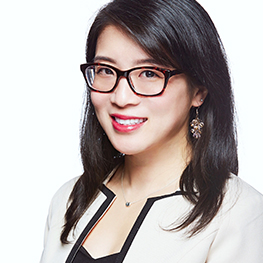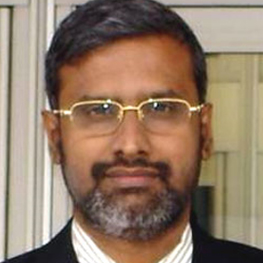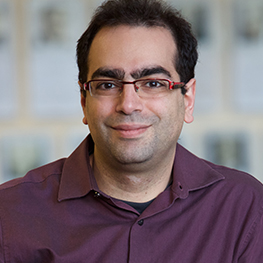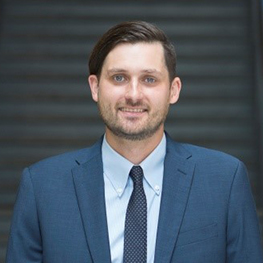Proceedings of the 3rd International Conference
on Theoretical and Applied Nanoscience and Nanotechnology (TANN'19)
June 13 - 14, 2019 | Ottawa, Canada
The keynote information for the 3rd International Conference of Theoretical and Applied Nanoscience and Nanotechnology (TANN'19) is as follows:

Dr. Winnie Ye
Carleton University, Canada

Dr. Murukeshan Vadakke Matham
Nanyang Technological University, Singapore

Dr. Nadi Braidy
Sherbrooke University, Canada

Dr. Tobin Filleter
University of Toronto, Canada

Dr. Byron Gates
Simon Fraser University, Canada

Dr. John Wang
National University of Singapore, Singapore
TANN'19 Keynote Speakers

Dr. Winnie Ye
Carleton University, Canada
Dr. Winnie Ye is a Canada Research Chair (Tier II) in Nano-scale IC Design for Reliable Opto-Electronics and Sensors. She is currently an Associate Professor in the Department of Electronics at Carleton University. Her expertise is in silicon photonics and its applications in biophotonics, telecommunications, and renewable energy. Dr. Ye received her B.Eng. degree in Electrical Engineering from Carleton University. She then studied Photonics and received her M.A.Sc. and Ph.D degree in Electrical and Computer Engineering from the University of Toronto and Carleton University, respectively. After working with the Silicon Photonics/Optoelectronics team at the National Research Council (NRC) during her Ph.D. program, she joined Prof. Lionel Kimerling's laboratory at the Massachusetts Institute of Technology (MIT) and Prof. Kenneth Crozier's laboratory at the Harvard University as a NSERC postdoctoral fellow to work on opto-electronic integration and silicon nanofabrication. Dr. Ye returned to Canada in 2009. She is the recipient of MRI's Early Researcher Award (ERA) in 2012, and the Research Achievement Award from Carleton University in 2013. Recently, she won the 2018 IEEE Women in Engineering (WIE) Inspiring Member Award, the 2018 Engineering Medal for Research and Development from the Ontario Professional Engineers (PEO), as well as the PEO Ottawa Chapter's 2018 Engineering Excellence Award.
Topic of Keynote:
Silicon Nanophotonics in Data Communication, Telecommunication, Biosensing and Photovoltaics

Dr. Murukeshan Vadakke Matham
Nanyang Technological University, Singapore
Murukeshan Vadakke Matham is a faculty and Deputy Director (Research and Education) of Centre for Optical & Laser Engineering (COLE), at Nanyang Technological University (NTU), Singapore.
Prof. Murukeshan Vadakke Matham pursued his doctoral degree at the Indian Institute of Technology, Madras and at the University of Oldenburg, Germany with the DAAD Fellowship award and was awarded PhD in 1997 from IIT Madras (INDIA). Since 1997, he has been attached to Nanyang Technological University (NTU), Singapore where he is currently working as an Associate Professor. He has 25+ years of research experience, and close to 19 years of professional experience (full time), which includes 3 and half years of postdoctoral experience and 16 years of teaching experience. He is a Life member of Optical Society of India (OSI), and regular member of Optical Society of America (OSA) and SPIE. He is also a Fellow of Institute of Physics, UK.
He has Presented more than 35 invited, 12 plenary/Keynote talks and over 15 pedagogical lectures at major Conferences in the area of Biomedical Optics and Nanoscale Optics in the recent past. He was session chairman in many international conferences and also Track Chair or Technical Co- Chair in ICOPEN conferences. He has given numerous research presentations in SPIE/OSA/Other international conferences or workshops held at different countries such as USA, Japan, Europe, Australia, India, and Singapore. He has also taught at conference workshops and given pedagogical lectures in the area of biomedical Optics and Nanoscale Optics. He is a SPIE (USA) Visiting Lecture.
He was/is visiting researcher or professor at various international universities or institutes. He was a visiting associate professor at University of California, Davis in 2006. He was an Erudite Professor, a distinguished Visiting Professor position at the Kerala University, India, in 2011. He is a visiting researcher at the Bio-nano research centre under MEXT, Japan. He is also a principal research scientist (Adj) at the prestigious Singapore Eye research Institute (SERI) for the last 5 years.
His major expertise falls in the areas of (i) Biomedical optics (multimodal imaging, hyperspectral imaging, photoacoustics and high resolution fiber optics probes), (ii) Micro and Nanooptics (Interferometric near field optics), and (iii) Optical Metrology. He has collaborated or in collaboration doing interdisciplinary research projects with faculties from different overseas universities and research institutes such as UC Davis (USA), Toyo University, Japan, James Cook Uni, AUSTRALIA, , IIT Chennai, International School of Photonics( CUSAT), India, to name a few. In Singapore, he has collaborative research projects with Singapore Bioimaging Consortium (SBIC), Singapore Eye Research Institute (SERI), Lee Kok Chian Medical School (LKC Medicine), Institute of Microelectronics, Singapore Institute of Manufacturing Technology (SIMTech) and I2R.
He has authored or co-authored over 165 international journal papers ( which include five papers published in nature publication group journals, top impact biomedical and nanoscale optics journals), over 145 international conference proceedings papers/presentations, 1 co-authored Text book and 6 book chapters (three on biomedical Optics and three on nanoscale optics and fabrication). He also holds 13 patents ( as main or co-inventor) and 8 innovation disclosures in the areas of Applied Optics, Laser speckle and Bio-Optics for Medical and Forensic applications. He has supervised 18 PhD students and 4 Master students till date and currently supervising 7 PhD students.
He was very active in the optics community circles with various activities. He is a member, award committee of prestigious SPIE Gabor award. He has given many visiting lectures at optics chapters of SPIE through VLP programmes. Further, he is very actively engaging and coordinating optics outreach programs with local schools in Singapore and around through the Center for Optical and Laser Engineering (COLE). He has given many short term courses to engineers/practitioners in the industries and academia to update them about the latest in optical engineering through continuing education programs. His journal editorial service include Associate Editor, Guest Editor and Member, Editorial boards of international optics journals which include Scientific Reports (Nature publishing group journal), International journal of optomechatronics etc. Service as reviewer in leading Nature journals, optics journals including SPIE and OSA journals, Involved in developing sessions , acting as plenary chair, session chair, technical co-chair at international conferences.
Topic of Keynote:
Diagnostic Biomedical Optics and Effect of Nano-Scale Contrast Agents

Dr. Nadi Braidy
Sherbrooke University, Canada
Biosketch
2018- Founder and Scientific Director of the Québec Network for Electron Microscopy of Materials
2015-20 Canada research chair on synthesis and characterization of hybrid nanomaterials
Education
2009 - Associate professor, Department of Chemical and Biotechnological Engineering, Université de Sherbrooke
2008-09 Post-doctorate fellow ONERA and Université Paris 7, France
2002-07 Ph.D. Materials Science and Engineering, McMaster University, Ontario
2000-02 M.Sc. Materials and Energy, INRS-Energie et Matériaux, Québec
1995-00 B. Eng. Génie des matériaux, École Polytechnique de Montréal, Québec
Research themes:
1. Hybrid Nanomaterials - Plasma spray-based methods , Ni-ferrites nanoparticles
2. Behavior of nanosystems - thermodynamic models for the equilibrium of mixed nanoparticles phase diagram determination, kinetics associated to nanostructures
3. Heterogeneous catalysis: spinel aluminate and ferrites, carbides, sulfides catalysts for hydrocarbon reforming, oxidation, reduction. Carbon support, graphene & nanotubes, nanoflakes
4. Materials characterizations: Transmission electron microscopy, spectroscopy (EDX & EELS), power X-ray crystallography, XPS, XAS/EXAFS combined to in situ methods. Multivariate analysis, data mining.
Topic of Keynote:
The dark side of the interface of catalysis: the point of view of nanomaterials

Dr. Tobin Filleter
University of Toronto, Canada
Tobin Filleter is the Erwin Edward Hart Professor of Mechanical & Industrial Engineering at the University of Toronto. Prof. Filleter received a B.Sc. in Engineering Physics from Queen’s University in 2003, and a Ph.D. in Physics from McGill University in 2009. Prior to joining the University of Toronto, Prof. Filleter was a postdoctoral fellow in the Department of Mechanical Engineering at Northwestern University from 2009-2012. Prof. Filleter leads the Nanomechanics and Materials Laboratory (NanoM2) at the University of Toronto which conducts cutting-edge research in the fields of nanomechanics and nanotribology. He is the recent recipient of the 2014 I.W. Smith Award from the Canadian Society for Mechanical Engineering (CSME), 2016 Early Researcher Award from the Ontario Ministry of Research and Innovation (OMRI), and 2017 Connaught New Researcher Award.
Topic of Keynote:
Failure Mechanics of 2D Materials

Dr. Byron Gates
Simon Fraser University, Canada
As a Tier II Canada Research Chair in Surface Chemistry at Simon Fraser University, Byron Gates built a research program to investigate the interface and surface chemistry of nanomaterials. His research program has sought to advance our knowledge of and ability to control these interfaces and to improve our understanding and control over nanomaterials for a variety of potential applications. Significant developments include the preparation of designer syntheses of nanoscale materials, delivery and release on command of small molecules from the surfaces of nanoparticles using the photothermal effect, and stabilization of materials through surface chemistry modifications. Dr. Gates has also demonstrated new technologies in materials design and fabrication through self-assembly (e.g., photonic bandgap materials and porous membranes with nanoscale features) and patterning materials through alternative lithographic approaches to existing technologies (e.g., establishing the limits of replicating nanoscale features by soft lithography).
Dr. Gates’ current efforts build upon and apply these technologies across many scientific disciplines. These efforts include the preparation of well-defined model catalyst layers and catalyst supports, establishing and controlling the on-set of corrosion in nanoscale materials, on-demand delivery and release of therapeutics from nanomaterials for potential use in the management of cancer, harnessing the properties of nanomaterials to create new tools for applications in measurement science, developing techniques for tracking and cleaning up nanomaterials in various environments (including those native to industrial sites), and establishing the best practices for handling and otherwise working with nanomaterials.
Dr. Gates received his B.Sc. from Western Washington University, and his M.Sc. and Ph.D. from the University of Washington in Seattle, Washington while working with Professor Younan Xia. He was a postdoctoral fellow at Harvard University with Professor George M. Whitesides, before joining the faculty at Simon Fraser University where he is an Associate Professor of Chemistry and the Head of the Centre for Soft Materials in 4D LABS.
Topic of Keynote:
Tuning the Surface Chemistry of Nanomaterials: A Perspective on the Challenges and Opportunities

Dr. John Wang
National University of Singapore, Singapore
Professor John Wang is Professor and Head of Department of Materials Science and Engineering, National University of Singapore. He has more than 30 years of experience in education and research of functional materials and materials chemistry. His current research focuses include: energy materials and devices, 2D materials chemistry, and nanostructured materials for water technologies. Professor John Wang has published >400 papers in prestigious, top international refereed journals.
Topic of Keynote:
Engineering of MOFs and MOF-derived Materials for Energy and Water Technologies